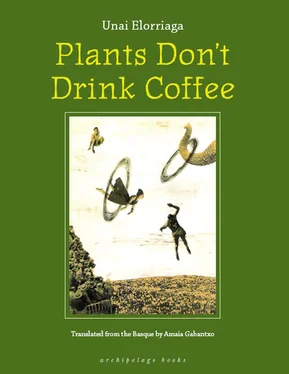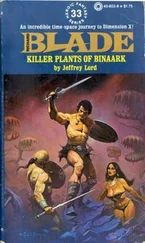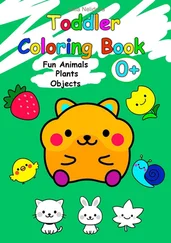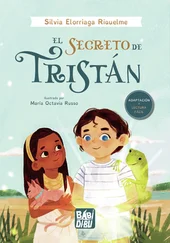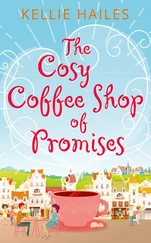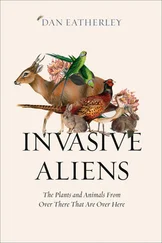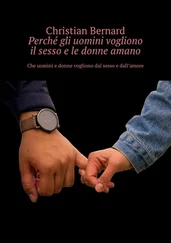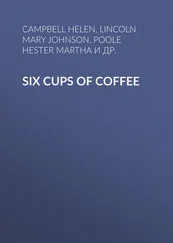Simon spent three days in Wales. The town mayor put him up and he ate his lunches and dinners with the priest. He returned forty-four days before the start of summer. In other words, Tomas wasn’t yet living at Aunt Martina’s and Uncle Abel’s. He spent some afternoons in Maloena, yes, with Aunt Martina, but he still hadn’t brought his pajamas over. Tomas brought his pajamas to Aunt Martina’s, to Maloena, in the summer, but when Simon returned from Wales there were forty-four days left before the start of the summer. The elastic of Tomas’ pajama pants was already broken when he arrived though. And Simon left two pairs of socks in Wales, at the priest’s. One pair was red, the other one normal.
Simon told his brother Abel stories about his stay in Wales. He told Martina, his sister-in-law, too. He also told Mateo, his nephew, a few things. But Simon especially wanted to tell Gur everything that had happened in Wales. He wanted to tell Gur what rugby was like in Wales. He would understand it well. His brother Abel didn’t understand it. Martina didn’t either. Gur would understand better than anybody else what rugby was like in Wales. That’s why Simon started looking for Gur.
Simon started looking for Gur on the very day he got back from Wales. And he looked for him at one o’clock in the afternoon and at four o’clock in the afternoon and at six thirty in the evening. Around the streets. And he didn’t find him.
On the second day after his return from Wales he looked for him: at ten thirty in the morning, at one o’clock in the afternoon, at four o’clock in the afternoon, at six thirty in the evening and at eight in the evening, come dusk. He didn’t find him then either. Gur didn’t have a phone.
On the third day after his return from Wales he looked for him: at ten thirty in the morning, at one o’clock in the afternoon, at four o’clock in the afternoon, at six thirty in the evening and at quarter to eight in the evening, come dusk. He didn’t find him then either. Not even in the usual places. Simon started to get worried.
But on the fourth day after his return from Wales Simon didn’t leave the house in the morning; he sat on the balcony, on the balcony in Maloena, peeling pears. When the weather was good Simon did everything on the balcony: peel pears, drink coffee, clip nails. He even made oars on the balcony. When he returned from Wales, for example, he had three half-finished oars there, standing upright in a corner of the balcony. They were for his brother Abel’s boat.
And as he was about to start peeling the fifth pear, Simon heard Gur’s voice: “What’s the news from Wales, Mister Simon?” Simon looked down from the balcony and saw Gur standing in the square, wearing blue canvas pants. He brought the pears to the kitchen and went to meet him, It was great, Gur, Wales was great.
And Simon and Gur started walking the usual way, through Borue and across the bridges of Badura. And Simon couldn’t wait to tell Gur everything that had happened in Wales. And he told him rugby is a huge sport in Wales, it’s incredible how many rugby fans there are in Wales. And what happened to him was incredible, because they’d allowed him to be linesman in a rugby match, in Wales no less, and in a Wales — Ireland match to boot.
Afterwards he confessed that it wasn’t exactly the Irish and Welsh teams who played, although the players wore their official uniforms. Gur knew this already, but Simon told him again that some Irish rugby players (very good ones, of course, first-rate ones) got together every year to play against a group of Welsh players in a microscopic Welsh village. And he explained why the match was played. And the reason was they wanted to save that village’s rugby field. That it was some sort of tradition over there, and that the players did it as a good deed because the field was over a century old, and everyone who plays rugby has been hearing about it since they were nine years old. Simon told Gur all that. Gur already knew it.
Then he explained to Gur that the rugby field of that village was funny, because it was on a steep upward slope and no one wants to play there, at least none of the top league teams, and children used it and without that yearly Wales — Ireland match the rugby field would have become a potato field a long time ago. Because it was on a steep slope. Because no one wanted to play on it.
And he explained to Gur that it was a friendly match, yes, it wasn’t a competition, but even then there were more than five thousand people watching the match. Over five thousand people, Gur, in a tiny little village; it was savage, Gur.
And he told him even that was striking, the fact that there were so many people, because there were no seats in the field, no stands around it. But Gur couldn’t understand it. Gur couldn’t understand how so many people could get onto a rugby field when there were no stands; that was impossible. Simon said yes, it was possible, and this was precisely the remarkable thing about the field, and this was the reason why they wanted to preserve it, because it was worth seeing and more than one hundred years old. And Simon explained why the field was so remarkable, because it had no stands but it had two hills, one at either side, like two little mountains, one at either side, all covered in grass, and people sat there to watch the match, and some people watched the match lying down.
Simon continued telling stories about Wales and the rugby field, and he said most people who’d gone to watch the match brought their own food, and their own drinks too, and they had a kind of party around the match that day. And he said after the match ended everybody stayed around the field, and they brought kegs of beer and other stuff there, and food as well, and everybody stayed there well into the night, around the field, and it was like a party, a party to save the field, and just as well the weather was good.
But there was also another kind of game going on that day, said Simon. And the game consisted in not stepping onto the field after the match. Simon said everything happened around the field, all the eating and drinking, but it was absolutely forbidden to step onto the field. That too was some sort of tradition; anyone who stepped onto the field had to pay a fine of one pound to the town mayor for each step. And they laughed and laughed when someone stepped onto the field, and the town mayor’s pockets were swollen, bursting, stuffed with pounds. And that too was a kind of tradition (everything was a tradition in Wales): they told Simon that every year the mayor would make his pockets smaller so they’d fill up more quickly, and he’d even shove a stone or two inside, and people laughed like mad when they looked at the mayor’s pockets, and everything was a reason for laughter after the match, and there was enough to drink there to sink Greenland.
And Simon told him some more funny stories. He said the priest decided he had to tackle the mayor, all of a sudden. He had to grab the mayor by the legs and send him to the ground like he did in his youth, to commemorate bygone times. Because they had actually played rugby together in their youth, the priest and the mayor, they’d been on the same team. No sooner than he’d thought of it he’d done it: the priest tackled the mayor, grabbing his legs, and all the coins in his pockets flew in the air. And a hundred guys must have slapped the priest on the back. Simon said the priest was fifty-seven and quite an accomplished drinker.
But even more things happened after the match. Simon said that the pharmacist’s husband, a lawyer, had gone to sleep in the middle of the rugby field. And he managed to lie down exactly in the middle of the field too. It was like he’d used a drawing compass to measure the field and find the exact center. And if it was forbidden to step on the grass, imagine what sleeping there meant. No one told him off, anyway; no one told him to get up, but the next day the mayor demanded ten pounds from him. Give me ten pounds .
Читать дальше
